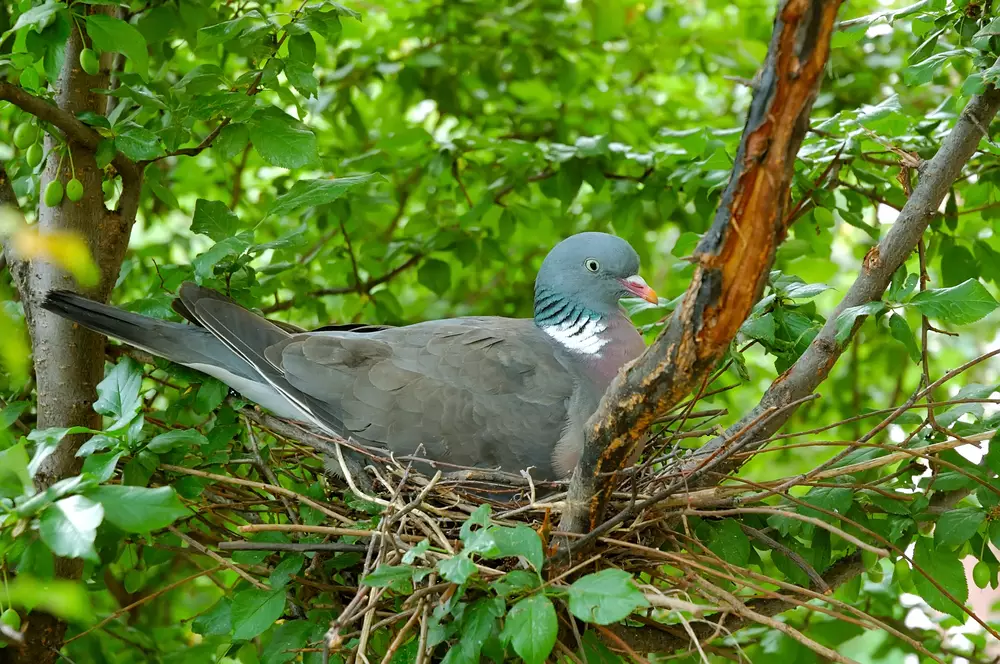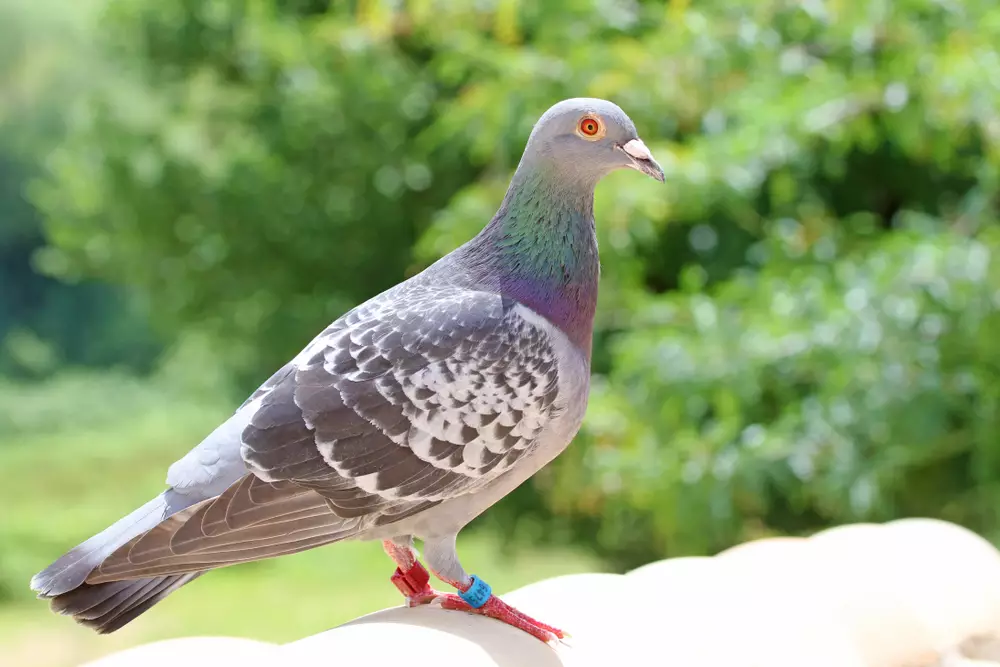Anyone who has shared their space with a pigeon knows the joy these intelligent birds can bring. Just like us, these delightful creatures are full of personality, each with its unique set of quirks and tendencies. This makes the human-pigeon relationship incredibly fulfilling, but not without its fair share of challenges.
The pigeon biting issue, for instance, is one that owners often grapple with. This unexpected behavior might leave you baffled and a bit hurt, both physically and emotionally. So, why does this happen? It’s usually a form of communication. Your feathered friend may be distressed, anxious, or defending its territory.
While biting might be distressing for both you and your pigeon, it’s crucial to remember that it doesn’t equate to malicious intent. These birds are just using the tools they have to express themselves. Understanding this behavior is the first step towards addressing it effectively.
Understanding Pigeon Bites
Bird behavior can often be quite intricate, comprising subtle cues and signs that can be easily overlooked. Among pigeons, biting can fall under two categories: aggression or affection.
Aggression and Affection
Bites in birds, including pigeons, can be aggressive or affectionate. Aggressive biting can be a result of fear, territorial instincts, or breeding-related behavior. Affectionate bites, or nibbles, are entirely different. Pigeons often nibble on the ones they bond with, which can seem like biting to the untrained eye.
Differentiating Between a Bite and a Nibble
A bite from a pigeon can be startling and may even draw blood, while a nibble is typically gentler and painless. By observing the pigeon’s body language, you can tell whether it’s expressing affection or reacting out of aggression or fear.
Top Reasons Why Pigeons Might Bite
Understanding why pigeons bite can help mitigate the issue. Here are some common reasons:
Territory Defense
Pigeons are territorial birds. They establish and protect their space, especially when they’re breeding or nesting. If they perceive you as an intruder, they might resort to biting.
Fear and Distress
Pigeons might bite if they’re scared or stressed. New environments, loud noises, or abrupt movements can induce fear, causing them to react defensively.
Breeding Season Aggression
During the breeding season, pigeons can become more aggressive due to hormonal changes. This can lead to increased biting, especially towards perceived threats.

Exploring the Role of Human Behavior
Our actions and behaviors have a significant impact on how pigeons interact with us. Some of the ways in which human behavior can influence pigeon biting include:
Human Interaction
Interactions between humans and pigeons play a major role in determining their responses. Abrupt or hurried movements can be perceived as threats, causing pigeons to react defensively.
- Disrupting Pigeon’s Space: Birds, particularly pigeons, value their space. Intruding this space, especially during critical times like nesting, can prompt defensive behavior.
- Handling Manner: Rough handling, whether during play or cleaning, can cause discomfort and stress, leading to biting.
- Consistency in Interaction: Inconsistent human interactions can confuse pigeons. Regular interaction patterns help pigeons build trust and feel safe.
Misinterpreted Actions
Actions that seem harmless to us might be perceived as threats by our avian companions. Recognizing these can help prevent biting incidents.
- Unexpected Touching: Even though petting is a sign of affection for us, it may be misunderstood by pigeons as a threat.
- Direct Eye Contact: Maintaining direct eye contact is a sign of threat in the bird world. This might make your pigeon uncomfortable and lead to biting.
- Loud Noises: Sudden loud sounds can frighten pigeons, and they may bite out of fear.
Symptoms and Signs Before a Pigeon Bite
Recognizing signs of stress or discomfort in pigeons can help avert biting incidents. Here are some signs to look out for:
The Warning Signs
Visual cues are essential in bird communication. Pigeons exhibit various signs indicating they are uncomfortable or stressed.
- Ruffled Feathers: When pigeons are distressed, they may ruffle their feathers, signaling their discomfort.
- Wide Eyes: Pigeons often widen their eyes when they feel threatened, which is a precursor to biting.
- Open Beak: Before biting, pigeons might give a warning by opening their beaks.
- Retreating or Cornering: If a pigeon feels threatened, it might retreat to a corner or try to move away. If you continue to approach, it may resort to biting.
Vocal Signals
Pigeons communicate vocally, and their sounds can convey their emotional state.
- Loud Cooing: Loud, agitated cooing often indicates that a pigeon is uncomfortable.
- Unusual Vocal Sounds: Any deviation from their regular vocal sounds might indicate stress or discomfort.

Preventing Pigeon Bites
Preventing pigeon bites involves creating a conducive environment and building trust. Here’s how:
Providing a Calm Environment
A calm environment helps reduce anxiety in pigeons.
- Proper Housing: Provide a spacious and clean environment for your pigeon. Include perches and nesting areas.
- Reduced Noise: Loud noises can stress pigeons. Try to minimize sudden, loud sounds around your pigeon’s area.
- Routine Care: Regular feeding and cleaning schedules provide stability and reduce stress.
Non-threatening Interactions
Building trust with your pigeon is critical to prevent biting.
- Slow Movements: Approach your pigeon slowly and predictably to avoid causing fear.
- Consistent Interaction: Regular, gentle interaction helps build trust and a strong bond.
- Respect Boundaries: Respect your pigeon’s space, especially during critical periods like nesting.
Professional Help and Resources
In some cases, persistent biting behavior might indicate a deeper problem. Here’s what you can do:
When to Consult a Vet
If biting persists despite positive changes in the environment and interaction, consult a vet. Pigeons might also bite due to physical discomfort or illness.
Available Resources
Online communities of pigeon enthusiasts and professionals can provide valuable insights and advice. Books, articles, and blogs on pigeon care also offer useful tips.
Frequently Asked Questions
How can I tell if my pigeon’s biting is due to aggression or affection?
Aggressive bites are usually harder and might draw blood, while affectionate nibbles are gentler. Also, pay attention to the pigeon’s body language and vocalizations.
My pigeon seems to bite more during certain times of the year. Why is this so?
Pigeons can become more aggressive during the breeding season due to hormonal changes, leading to increased biting.
Are there specific breeds of pigeons more prone to biting than others?
While individual temperament plays a significant role, no specific breed is inherently more prone to biting. However, some breeds might be more territorial, which could lead to biting if their space is violated.
Conclusion
Navigating the world of pigeon behavior can be fascinating, though not without challenges. Pigeon bites can be perplexing and may cause discomfort, but they are often a form of communication. By understanding the reasons behind this behavior, we can make positive changes to prevent it.
Creating a calm environment, respecting the pigeon’s space, and interacting gently and consistently can help reduce biting incidents. If the behavior persists, seeking professional advice is beneficial.
Pigeons are intelligent and social birds, and understanding their behavior contributes significantly to the joy of cohabitating with them. By addressing biting issues effectively, we can foster stronger bonds with our feathered friends and enjoy the unique companionship they offer.